Vaira Vīķe-Freiberga
|
Vaira Vīķe-Freiberga
|
|
 |
|
|
6th President of Latvia
|
|
|---|---|
| In office 8 July, 1999 – 7 July, 2007 |
|
| Preceded by | Guntis Ulmanis |
| Succeeded by | Valdis Zatlers |
|
|
|
| Born | December 1, 1937 Riga, Latvia |
| Nationality | Latvian |
| Political party | none |
| Spouse | Imants Freibergs |
| Children | 2 |
| Alma mater | University of Toronto Mississauga |
| Profession | Psychologist |
Vaira Vīķe-Freiberga (also known as Vaira Vikis-Freibergs; born December 1, 1937 in Riga, Latvia) was the 6th President of Latvia and first female President of Latvia. She was elected President of Latvia in 1999 and reelected in 2003. She has been succeeded by Valdis Zatlers, who was elected President of Latvia on 31 May 2007.
Contents |
Early life and education
Vaira Vīķe-Freiberga was born Vaira Vīķe on 1 December 1937 in Riga, Latvia. At the end of 1944, as Soviet occupation of Latvia begun, Vīķe's parents escaped to Germany. There she received her first education in Latvian primary school at refugee camp in Lübeck, Germany. Then her family moved to French Morocco in 1949. In Morocco she attended French primary school at Daourat hydroelectric dam village where she learned French. Vīķe then went on to attend Collège de jeunes filles de Mers-Sultan in Casablanca. In 1954 her family moved to Toronto, Canada. There she completed Grade 13 and received her high school diploma. In 1958 she was accepted as a student at the University of Toronto. She first achieved a BA in psychology in 1958 and followed it with an MA in 1960, while working full time at the Canadian Imperial Bank of Commerce as a teller. In 1957–1960 she worked part time as a supervisor in Branksome Hall Boarding School for Girls. In 1958, being fluent in English, French, Latvian, Spanish and German, she worked as a Spanish translator and the next year went on to work as a Spanish teacher for grades 12 and 13 at Ontario Ladies' College. Upon leaving the University of Toronto, Vīķe became a clinical psychologist at the Toronto Psychiatric Hospital in late 1960. She left in 1961 to resume her education at the McGill University in Montreal where she earned her PhD in experimental psychology, leaving the University in 1965.[1]
Family and personal life
Vaira Vīķe-Freiberga is married to Imants Freibergs, a professor of computer sciences at Université du Québec à Montréal, who is currently the President of the Latvian Information and Communications Technology Association (LIKTA). They met at a gathering of expatriate Latvians and were married at a low-key ceremony in Toronto. They have two children, Kārlis and Indra, but no grandchildren.
Professional life
In 1965, she took the post of Professor of Psychology at the University of Montreal where she taught psychopharmacology, psycholinguistics, scientific theories, experimental methods, language and cognitive processes (in French). Whilst working at the University, Vīķe-Freiberga also researched memory processes and language as well as producing several papers on the problems and influences of drugs on the mind. She became a well-known figure on the political speaking circuit and often spoke on radio, TV or in schools in English, French and Latvian. Vīķe served on many councils and organisations in high positions. These include:
- Member of the Post-doctoral Fellowship Selection Committee of the Natural Sciences and Engineering Research Council of Canada (1975–78)
- Member of the Board of Directors of the Social Science Federation of Canada (1977–82). She served as President from 1980 to 1981.
- Member of the Board of Directors of the Canadian Psychological Association (1976–82). She was President from 1980 to 1981.
- Appointed Canadian member and Chair of the Special Panel on Human Factors of the NATO Scientific programme in Brussels (1978–81)
- Member of the Board and Executive Committee of the Canadian Federation for the Humanities (1980–82)
- Member and president of organising committees of various national and international symposia and conferences (1982–86)
- Member of the Consultative committee on Mental Health Research, Health and Welfare Canada (1983–86)
- Member of the Board of Directors of the Association for the Advancement of Baltic Studies (1982–88). She was President from 1984 to 1986.
- Member of the Science Council of Canada (1980–83). She appointed Vice-President in 1984 by the Governor-General of Canada and served in the position until 1989.
In 1994, she was appointed a Member of Council and later President of the Academy I of the Royal Society of Canada. She ceased all activity with this organisation in 1999. She was also a Member of the Killam Research Fellowships and Prizes Selection Committee from 1995-1998. Vīķe-Freiberga served on the Canadian governmental consultative committee on the disposal of nuclear waste in 1996 but continued to teach at the University of Montreal. In June 1998, she was made a Professor Emerita and took this opportunity to return to Latvia.
Studies of Latvian culture
Whilst in Canada, Vaira Vīķe-Freiberga was active in the Latvian community and had used Latvian folklore, such as the dainas, as part of her research in various academic studies. She wrote many articles on Latvian identity in which she was critical of the Soviet Union and outlined her views of the political future of Latvia and other Baltic states — Lithuania and Estonia. She became a regular lecturer in North and South America, Europe and Australia on the subject of Latvian culture and heritage. During her career at Montreal, Vīķe authored a total of ten books and 160 articles, essays, book chapters and forewords on Latvian culture. In June 1998, she was made a Professor Emerita and took this opportunity to return to Latvia, where she received the offer of the Directorship of the Latvian Institute. In 2004, she was made a member of the Writers’ Union of Latvia in recognition for her writing achievements.
In June 1999, she had been scheduled to give the keynote address to the Third Conference of Baltic Studies in Europe, being held in Stockholm, Sweden; however, as she unexpectedly had just been elected President of Latvia by the Latvian parliament in Riga, she was unable to attend the conference, and her speech was cancelled.
Presidency


Vaira Vīķe-Freiberga became President of Latvia in 1999. Although not a candidate in the first ballot, she was drafted by the Saeima (Latvian Parliament) and was elected to the office of President of Latvia. She was sworn in on 8 July. Short after her election, the European Union (EU) offered membership to Latvia at the EU Summit at Helsinki 1999. She has been a Member of the Council of Women World Leaders since 1999 and seemed to make foreign policy her main area of activity and is most known for her role in securing North Atlantic Treaty Organization (NATO) and EU membership for Latvia. In 2002, Ms Vīķe-Freiberga gave a frank interview to Meriel Beattie of the BBC in which she stressed a positive attitude to ensure Latvia shook off the culture of the days of Soviet Occupation. She asserted her belief in the European identity saying, "Identity is no one single thing that you pin on your chest and say that it identifies you as being English or Latvian. In Latvia we belong to this whole area of Europe where mushroom hunting is a passion as well as a sport". Her approval rating has ranged between 70% and 85%, securing her place as very popular among Latvians. In 2003 she was re-elected for a second term of four years with 88 votes out of 96.
Her views are said to be quite conservative though she has no political affiliation. She is also a strong supporter of the U.S. policy in Iraq and on various occasions she has asked that Russia admit to the Soviet occupation of the Baltic States. One such occasion was her address to a joint session of the United States Congress, in which she thanked the United States for supporting the new democracies of the Baltics and Eastern Europe. She went on to emphasize that history was not being re-written by acknowledging that the Soviets had occupied the three Baltic nations and that, for Latvia, the end of World War II meant the occupation by one foreign totalitarian regime being replaced by the occupation by another foreign totalitarian regime.[2]
Vīķe-Freiberga was sometimes criticised for her relative inactivity in domestic politics. However, given the restricted powers of Latvia's president stipulated in the Constitution of Latvia (see Politics of Latvia), these accusations are often deemed unfounded.[3] She has sponsored a number of bills in Parliament and vetoed over twenty bills. In one internationally noted incident, she returned a bill banning employment discrimination with a tersely worded note saying that sexual orientation had to be added as a prohibited ground of discrimination. On another occasion, in March 2007, she used her presidential powers to suspend two national security laws passed by the parliament a few days before and to initiate a referendum on repealing them.

During her presidency she regularly visited towns and villages to meet her constituents in person, and received many thousands of letters yearly from Latvians.[4] She has initiated a discussion to introduce compulsory voting in general elections to more fully engage Latvian citizens in the political processes of the country. This initiative, however, did not succeed. In April 2005, then United Nations Secretary-General Kofi Annan named Vīķe-Freiberga as a member of his team of global political leaders helping to promote his comprehensive reform agenda.[5]
After months of speculation that Vīķe-Freiberga would run for the post of United Nations Secretary-General, the three Baltic States finally jointly announced her candidacy on September 16, 2006. When she addressed the UN General Assembly, she pledged that she would face "the challenges posed by the UN reform and promoting human rights, freedom and democracy, including gender equality". Her chances of being chosen were thought to be slim because Russia, a permanent member of the UN Security Council, has indicated it will not support any Eastern European candidate. She withdrew her candidacy on 5 October 2006
Vīķe-Freiberga, however, was believed to enjoy the support of the White House, including President George W. Bush and Secretary of State Condoleezza Rice. It is thought that Riga was chosen to host the NATO Summit in 2006 partly thanks to her relationships with the President and with Dr. Rice.
After presidency
Vaira Vīķe-Freiberga was succeeded on 8 July 2007 by Valdis Zatlers, who was elected President of Latvia on 31 May 2007. On 18 July 2007 she founded the company VVF Consulting together with her husband.[6][7] On 14 December 2007 she was appointed Vice-president of the Reflection Group on the long-term future of the European Union.
Selected works
- Vikis-Freibergs, Vaira (1974) (in French). Fréquence d'usage des mots au Québec. Montréal: Les Presses de l'Université de Montréal. ISBN 0840502621. OCLC 1196238.
- Telner, John I.; Vikis-Frebergs, Vaira; Lepore, Franco (1976). "Effects of Low and Moderate Doses of Chlorpromazine on Discrimination Learning in the Rat" (PDF). Psychopharmacology 47 (2): 205–208. doi:. ISSN 0033-3158. http://www.springerlink.com/content/tk58726116622x05/fulltext.pdf. Retrieved on 2007-09-09.
- Vīķis-Freibergs, Vaira (1980). "A Structural Analysis of Lexical and Contextual Semantics—Latvian Balts 'White' in Sun-Songs" (PDF). Journal of Baltic Studies 11 (3): 215–230. doi:10.1080/01629778000000241 (inactive 2008-06-20). ISSN 0162-9778. http://taylorandfrancis.metapress.com/index/U714214148204283.pdf. Retrieved on 2007-09-09.
- Vīķe-Freiberga, Vaira; Freibergs, Imants (1988) (in Latvian with English summary). Saules dainas. Montreal: Helios. ISBN 0969350104. OCLC 26852842.
- Vikis-Freibergs, Vaira (ed.) (1989). Linguistics and Poetics of Latvian Folk Songs: Essays in Honour of the Sesquicentennial of the Birth of Kr. Barons. McGill–Queen's Studies in Ethnic History 4. Kingston, Ont.: McGill–Queen's University Press. ISBN 0773506616. OCLC 22859230.
- Vīķe-Freiberga, Vaira (1989) (in Latvian with English summary). Dzintara kalnā: Apceres par latviešu tautasdziesmām. Montreal: Helios. ISBN 0-9693501-2-0. OCLC 22507193.
- Vīķe-Freiberga, Vaira (1993) (in Latvian with English summary). Pret straumi: Runas un raksti par latvietības tēmām, 1968–1991. Montreal: Helios. ISBN 0969350163. OCLC 35973645.
- Vīķe-Freiberga, Vaira (1997–2002) (in Latvian with English summaries). Trejādās saules. Riga: Karogs. OCLC 48131981. 3 vols.:
- Vīķe-Freiberga, Vaira (1997). Kosmoloģiskā saule. ISBN 9984-505-40-5. OCLC 39371542.
- Vīķe-Freiberga, Vaira (1999). Hronoloģiskā saule. ISBN 9984-505-52-9. OCLC 60334094.
- Vīķe-Freiberga, Vaira (2002). Meteoroloģiskā saule. ISBN 9984-505-71-5. OCLC 66500789.
- Vike-Freiberga, Vaira (2000). Latvia's Place in a New Europe. European Essay 13. London: Federal Trust for Education and Research. ISBN 190340326X. OCLC 45682632.
- Melngailis, Emīlis; Vīķe-Freiberga, Vaira (ed.) (2005) (in Latvian and English). Saules balsī: Latvian Sun Song Melodies. Riga: Karogs. ISBN 9984-505-82-0. OCLC 68609088.[8]
Honours
- Marcel-Vincent Prize - 1992
- Pierre Chauveau Medal - 1995
 Order of the Three Stars, First Class - 1995
Order of the Three Stars, First Class - 1995 Grand Medal of the Latvian Academy of Sciences - 1997
Grand Medal of the Latvian Academy of Sciences - 1997 Grand Cross of the Royal Norwegian Order of St Olav - 2000
Grand Cross of the Royal Norwegian Order of St Olav - 2000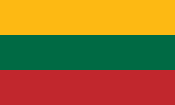 Grand Cross of the Order of Vytautas the Great - 2001
Grand Cross of the Order of Vytautas the Great - 2001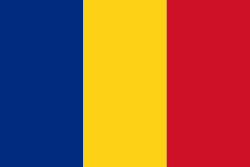 Star of Romania Order, Sash Rank - 2001
Star of Romania Order, Sash Rank - 2001 Officer of the National Order of Quebec - 2006
Officer of the National Order of Quebec - 2006 Order of Yaroslav the Wise - 2006
Order of Yaroslav the Wise - 2006 Dame Grand Cross of the Order of the Bath - 2006
Dame Grand Cross of the Order of the Bath - 2006 Honorary doctorate by the University of Ottawa - 2006
Honorary doctorate by the University of Ottawa - 2006 Order of the Mohammediya - 2006
Order of the Mohammediya - 2006 Knight of the Order of the Seraphim - 2006
Knight of the Order of the Seraphim - 2006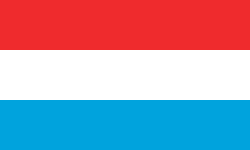 Grand Cross of the Civil and Military Order of Merit of Adolphe of Nassau - 2007
Grand Cross of the Civil and Military Order of Merit of Adolphe of Nassau - 2007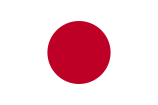 Grand Cordon of the Order of the Chrysanthemum - 2006
Grand Cordon of the Order of the Chrysanthemum - 2006 Grand Officer of the Order of Léopold - 2007
Grand Officer of the Order of Léopold - 2007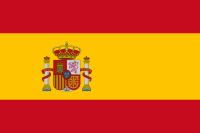 Grand Officer of the Order of Isabella the Catholic - 2007
Grand Officer of the Order of Isabella the Catholic - 2007 Honorary doctorate by York University - 2008
Honorary doctorate by York University - 2008
See also
- List of Presidents of Latvia
References
- ↑ (English) "Curriculum vitae of Vaira Vīķe-Freiberga (until 1999)". Chancery of the President of Latvia. Retrieved on 2007-09-06.
- ↑ (English) Vīķe-Freiberga, Vaira (June 7, 2006). "Address to joint session of the United States Congress". Embassy of Latvia to the United States. Retrieved on 2007-09-04.
- ↑ (Latvian) Ikstens, Jānis (2003 10 June). "Ūdensvirsas gājēja". politika.lv. Retrieved on 2007-09-04. "Ir pieņemts uzskatīt, ka Valsts prezidenta institūcija Latvijā ir gluži dekoratīva un tai nepiemīt kādas plašākas pilnvaras (English: It is assumed that the institution of President of Latvia is fairly decorative and has no extensive powers)"
- ↑ (Latvian) "Atskaite par saņemtajām vēstulēm" (doc). The Chancery of the President of Latvia. Retrieved on 2007-09-04.
- ↑ (English) "Latvian President named envoy to help promote Annan's reform agenda ahead of UN summit". UN News centre (12 April 2005). Retrieved on 2007-09-04.
- ↑ (English) "Data bases of the Register of Enterprises". Lursoft IT. Retrieved on 2007-09-21.
- ↑ Bīders, Ritvars (2007-07-25). "Freiberga pelnīs konsultāciju biznesā" (in Latvian), DB.lv. Retrieved on 2007-09-21.
- ↑ (English) "Summary of publications by Vaira Vīķe-Freiberga". Chancery of the President of Latvia. Retrieved on 2007-09-03.
Further reading
- Vitols-Dixon, Nadine. A Life's journey: Vaira Vīķe-Freiberga, President of Latvia. Riga: Pētergailis. ISBN 9984331741.
- Čaklais, Māris (in Latvian). Izaicinājums. Riga: Pētergailis. ISBN 9984-33-062-1.
- Cimdiņa, Ausma (in Latvian). Brīvības vārdā. Riga: Jumava. ISBN 9984-05-375-X.
External links
- Vaira Vīķe-Freiberga on Official website of the Chancery of the President of Latvia
- Cosmopolis interview with President Vike-Freiberga
- Council of Women World Leaders - Councilmember since 1999
- UNSG.org - Who will be the Next Secretary General?
- Covering the race for the next UN Secretary General
- UNSGselection.org - For a Democratic, Transparent and Effective Selection Process for the United Nations Secretary-General
- A Campaign of the World Federalist Movement
| Preceded by Guntis Ulmanis |
President of Latvia 1999 – 2007 |
Succeeded by Valdis Zatlers |
|
|||||||
| Persondata | |
|---|---|
| NAME | Vīķe-Freiberga, Vaira |
| ALTERNATIVE NAMES | Vaira Vikis-Freibergs; Vaira Vīķis-Freibergs; Vaira Vīķe |
| SHORT DESCRIPTION | 6th President of Latvia |
| DATE OF BIRTH | December 1, 1937 |
| PLACE OF BIRTH | Riga, Latvia |
| DATE OF DEATH | |
| PLACE OF DEATH | |